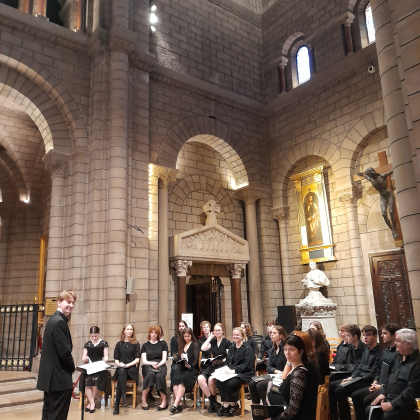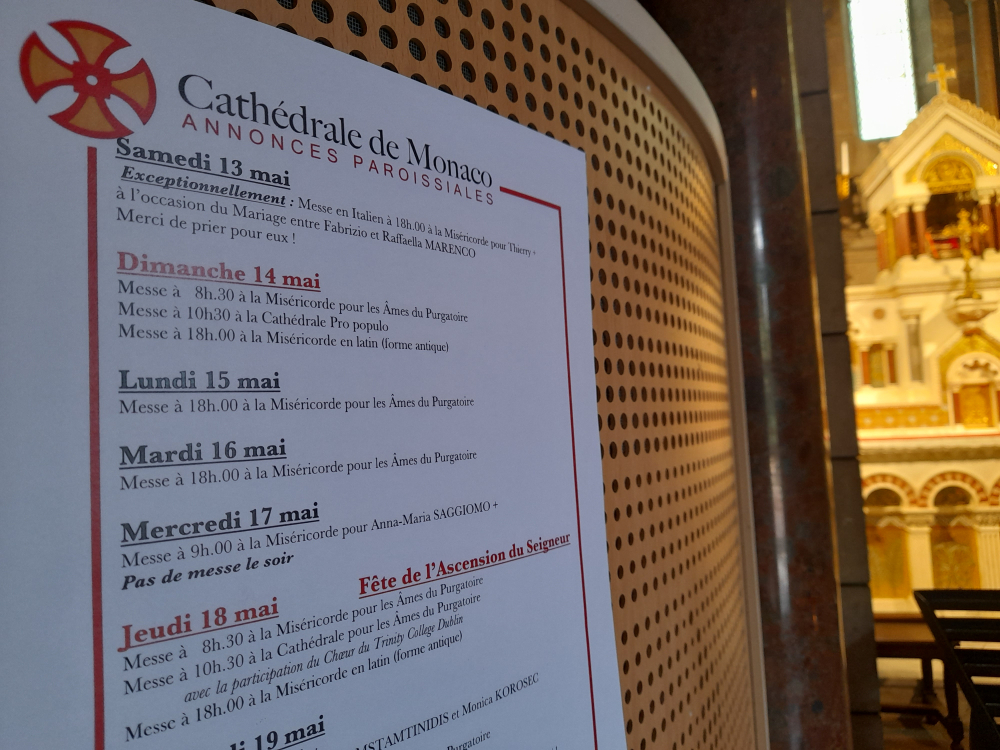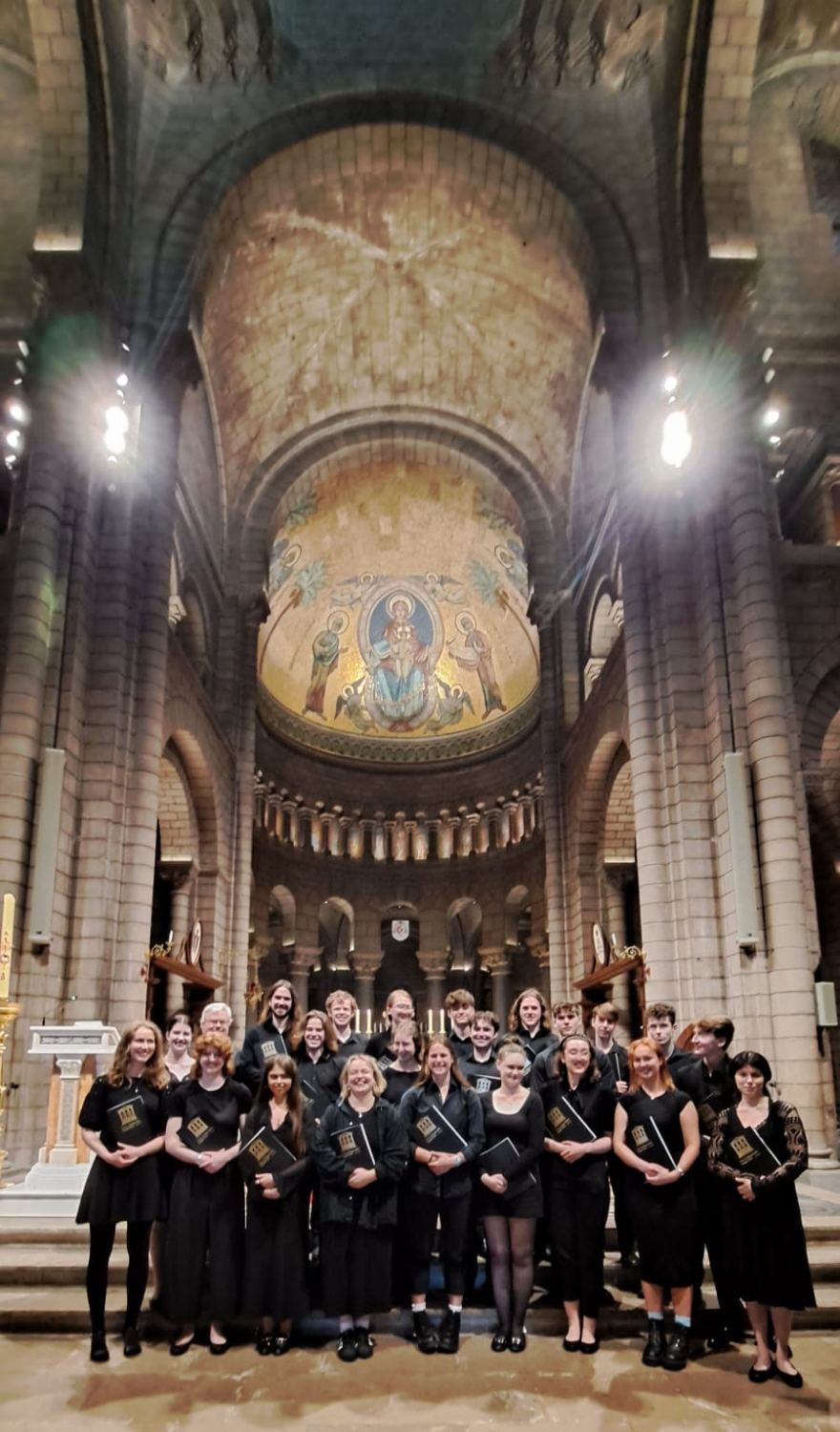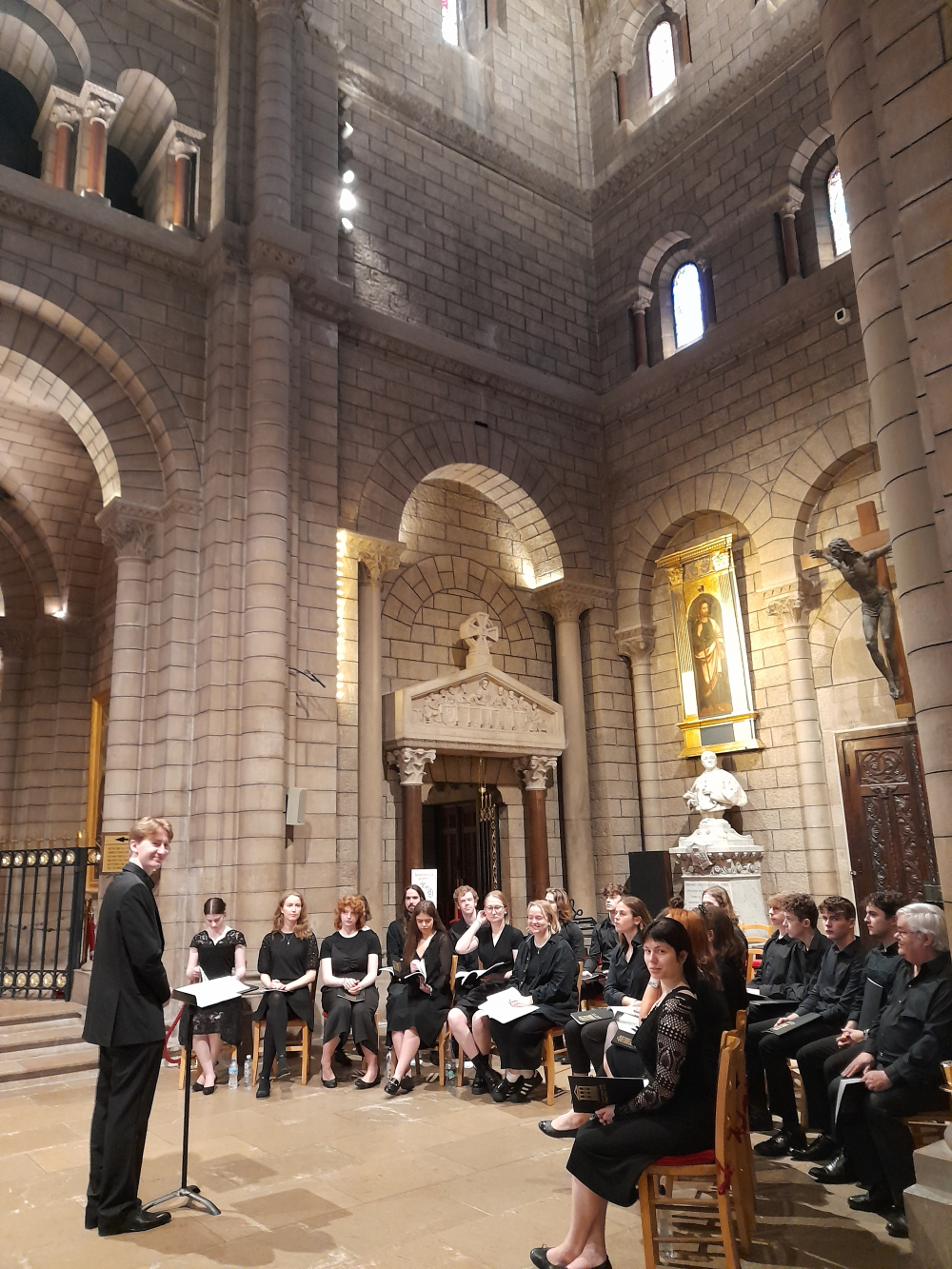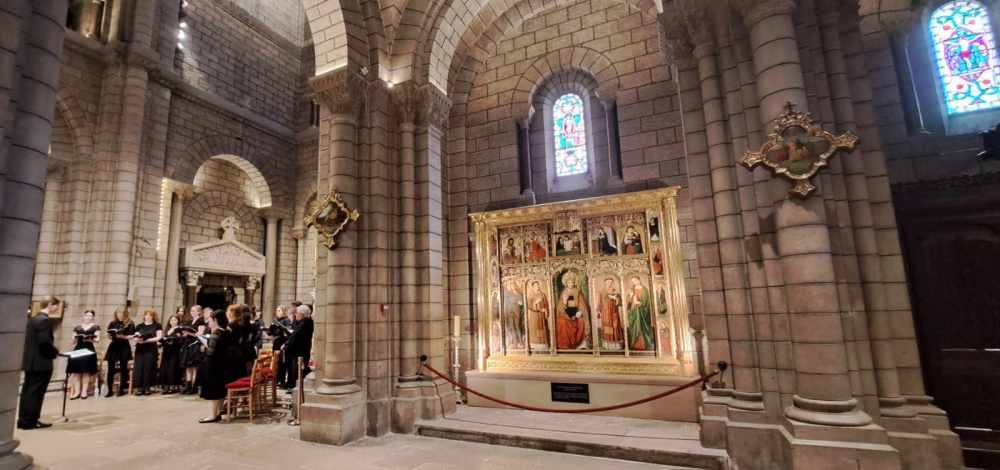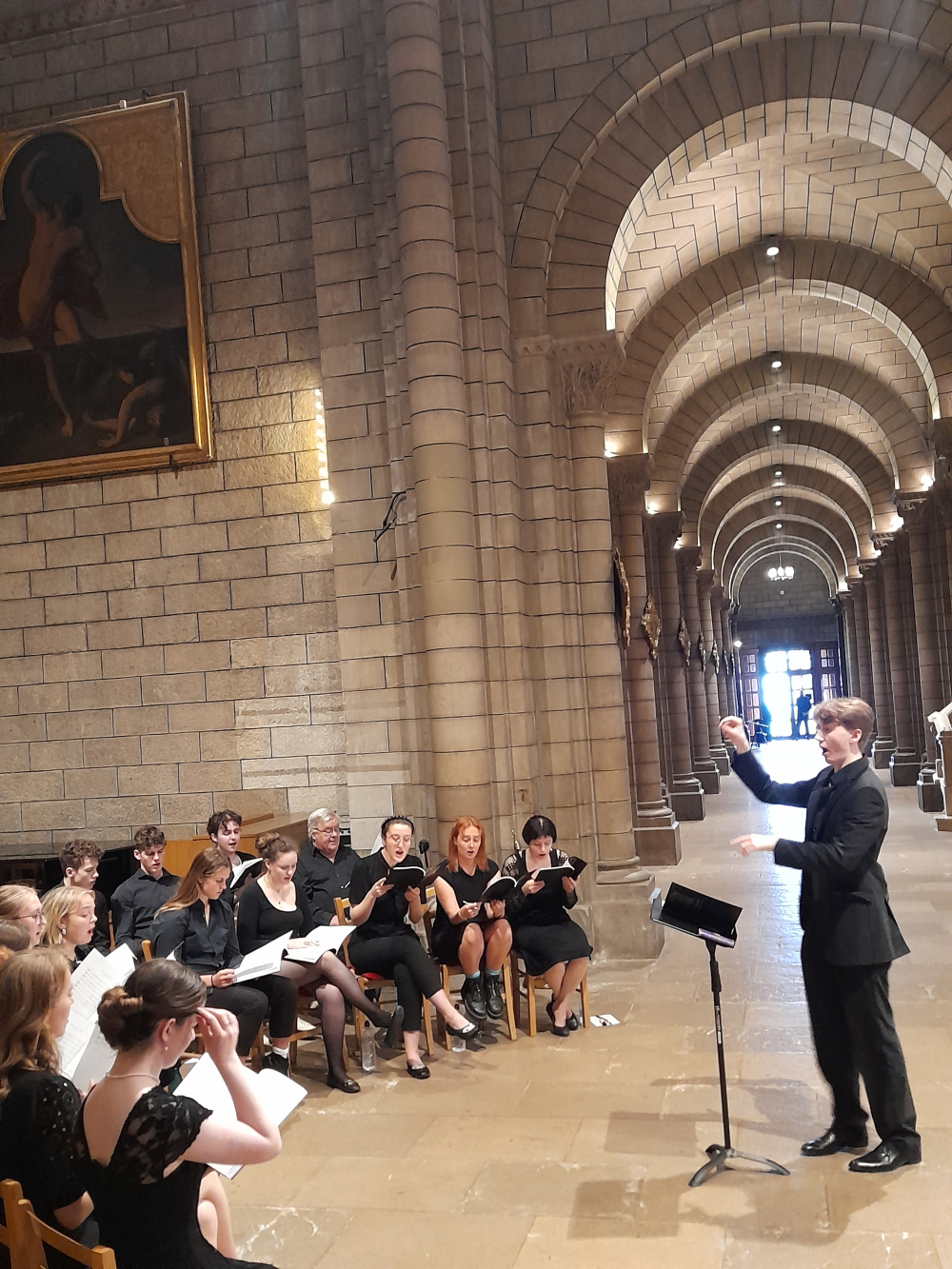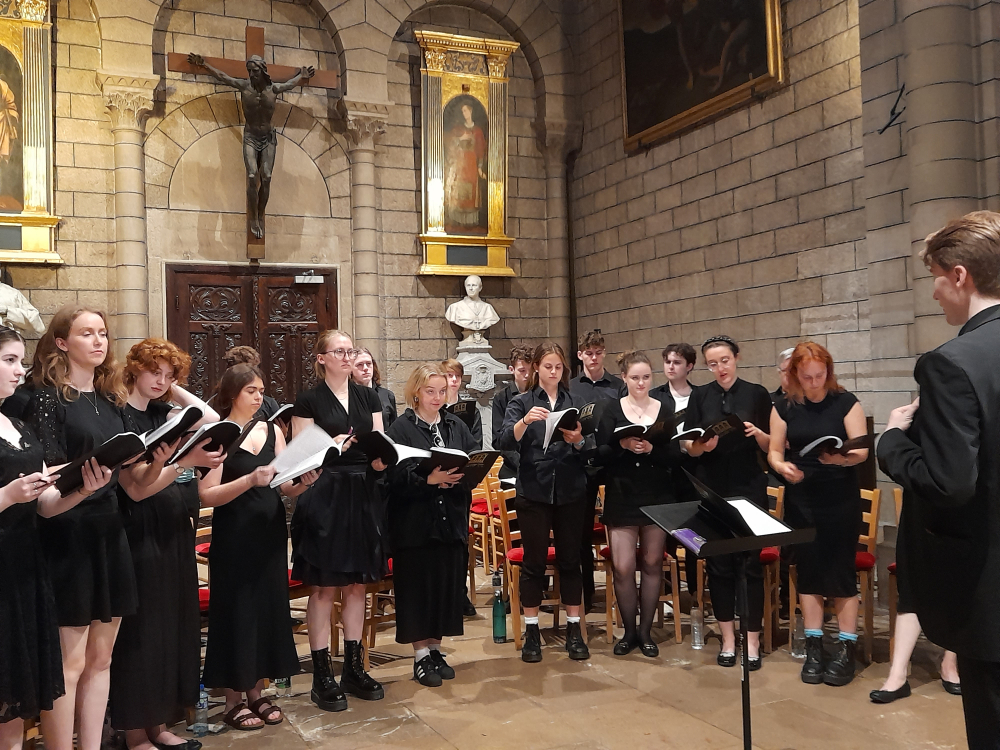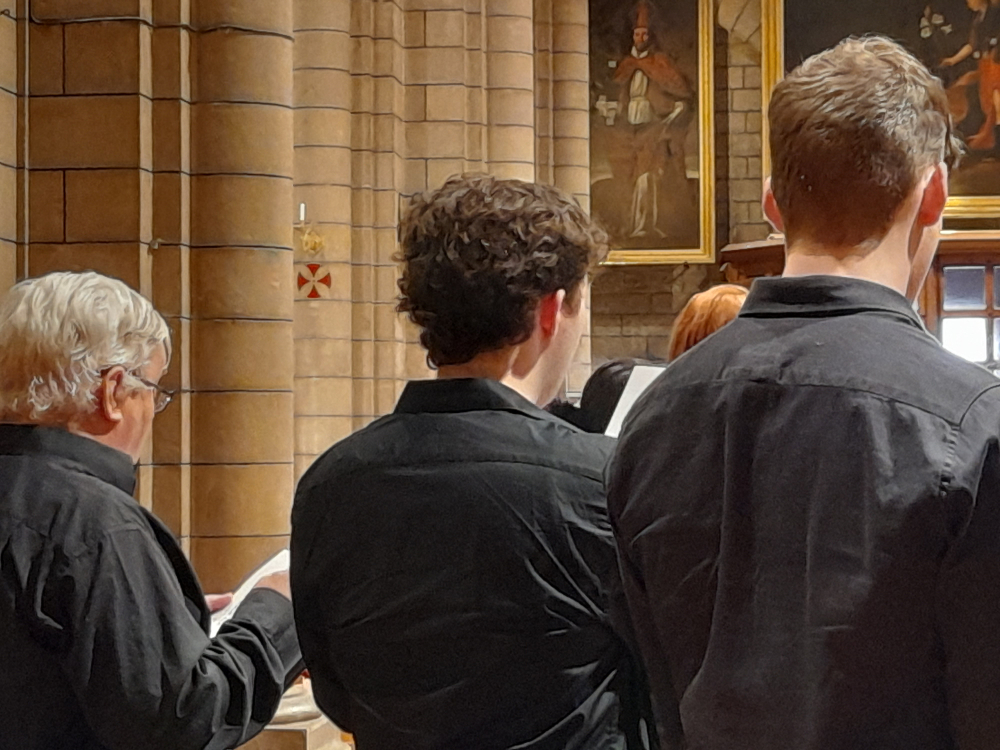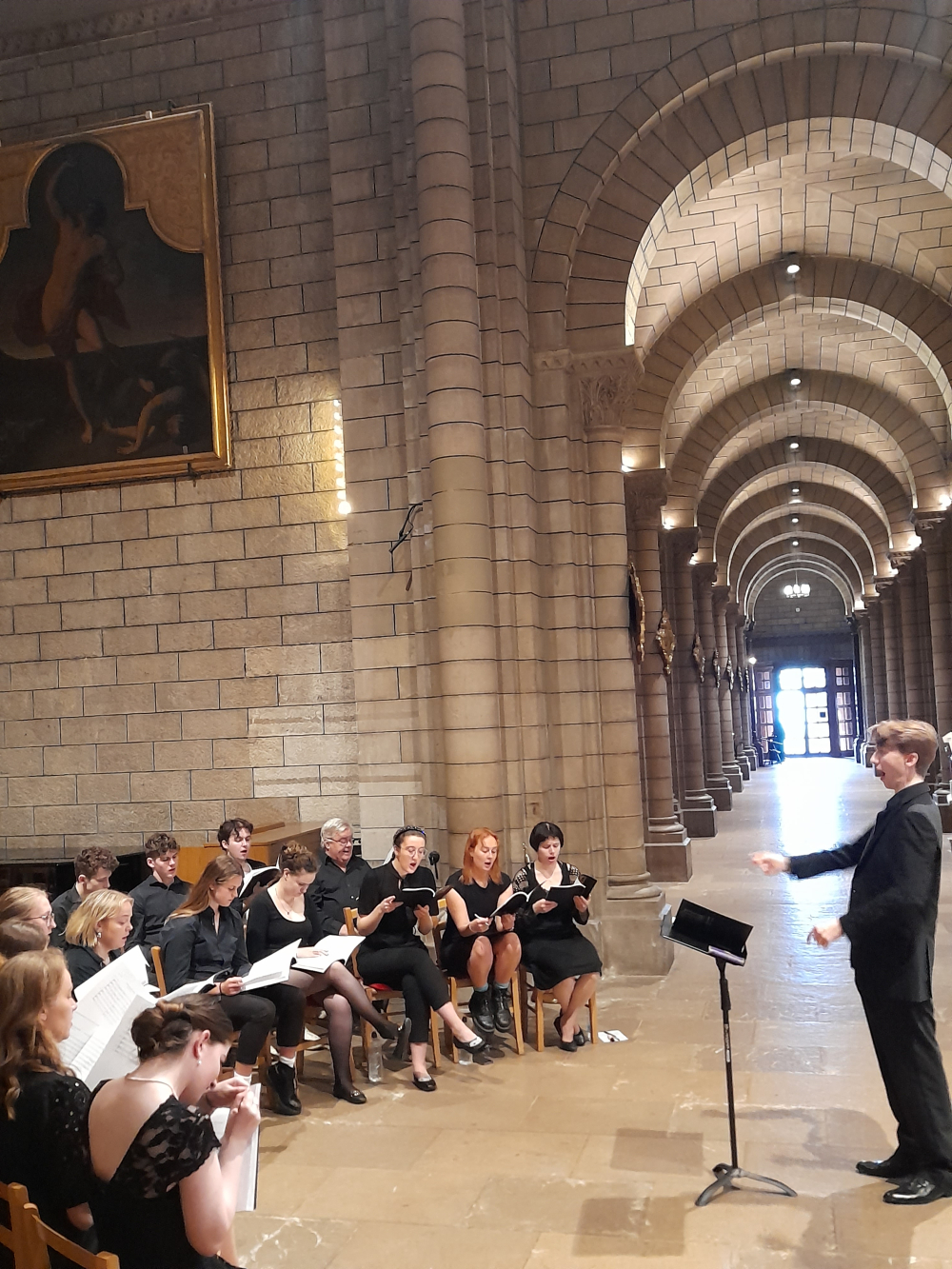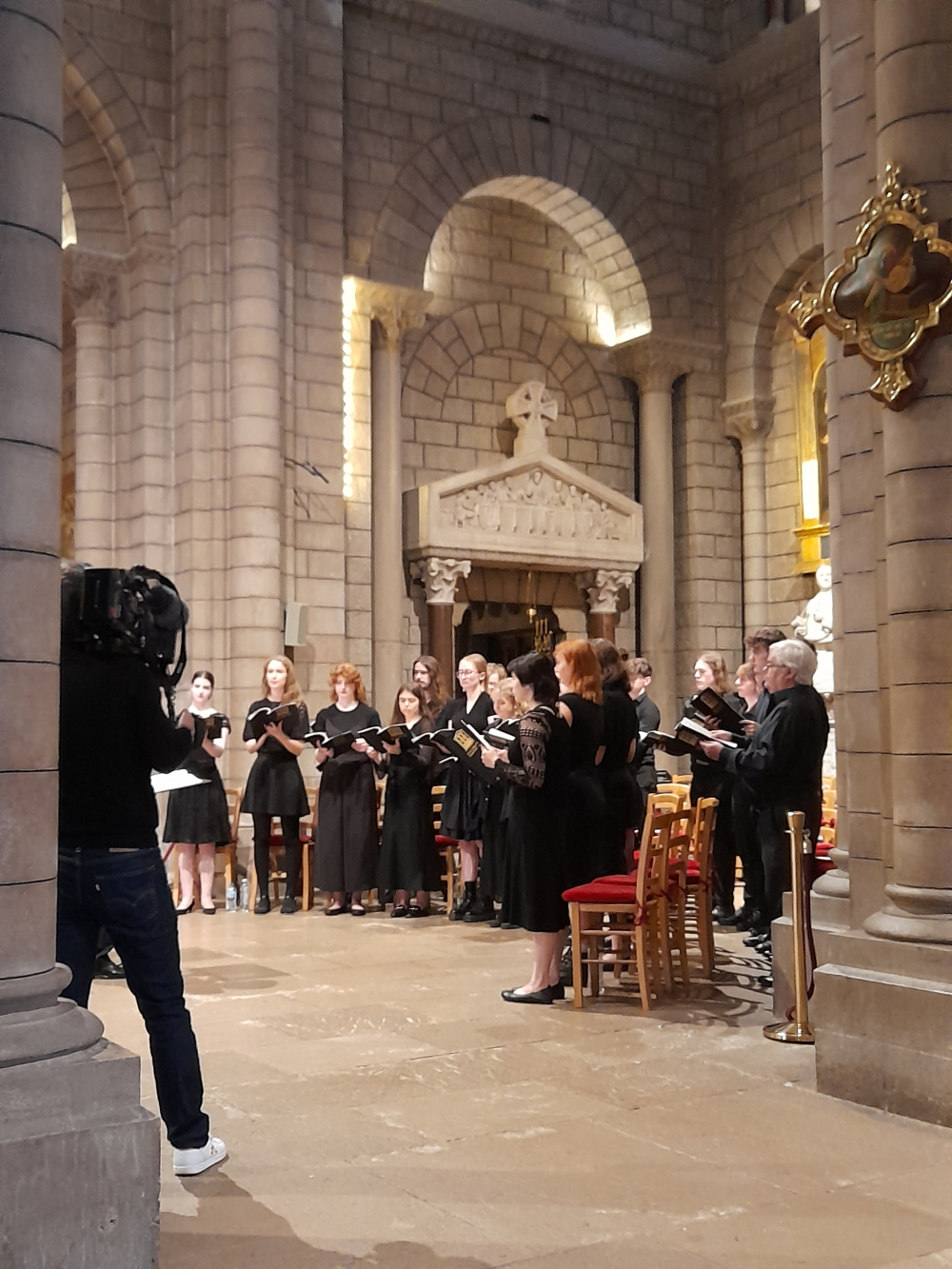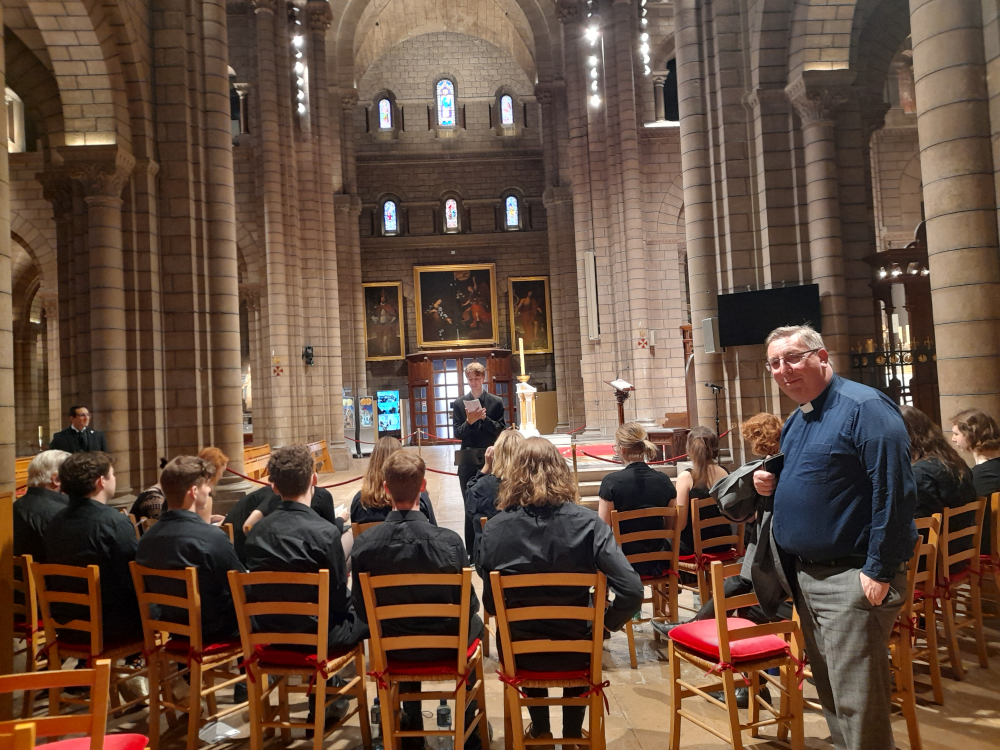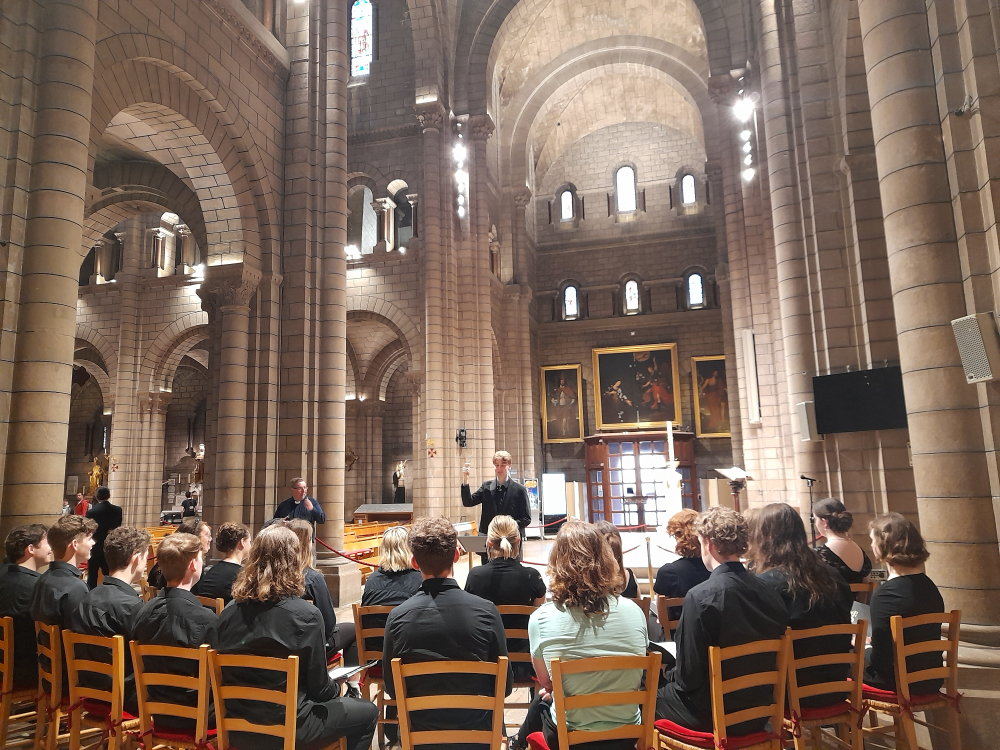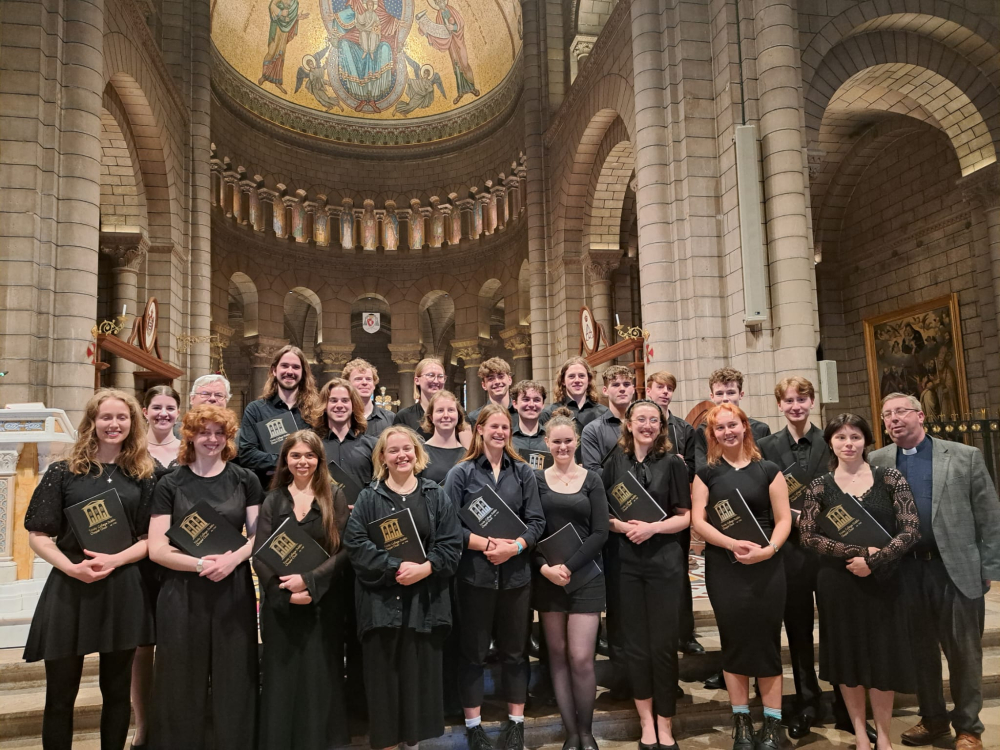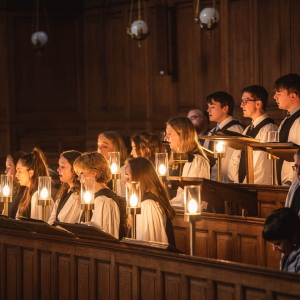

A Short History of the Choir of the Chapel
There were several plans to establish a university in Dublin during the 16th century, but it was not until 1592 that these plans came to fruition. A royal charter dated 3rd March 1591, old style, provided for the ‘College of the most Holy and Undivided Trinity of the foundation of Queen Elizabeth, near Dublin’.
The early history of the Chapel and its music remains obscure but by the middle of the 17th century there are records of the appointment of an organist to the college. The first regular choir in the College Chapel was established by Provost Francis Andrews in 1762. The present Chapel building was consecrated in 1798 and is notable for its particularly fine interior and rich acoustic. Choral music in the College Chapel remained largely dependent on singers from St Patrick’s and Christ Church Cathedral until the late 1960s, when it was decided that there should be an independent choral foundation in Trinity. Organ and Choral Scholarships were established and a mixed choir of about twenty-five voices was formed.
In addition to the regular choral services during each week of lecture term and various special College and University services, the Chapel Choir gives concerts and is broadcast regularly on TV on both RTE and BBC. In term time the choir sings a wide variety of music from medieval to modern at Evensong every Thursday and at Choral Eucharist on Sundays. Trips within the British Isles are organized twice yearly and more distant travels have included Heidelberg, New York Venice, Vienne, Berlin, Hamburg, Rome, Madrid, Lisbon, Leuven and Hong Kong.
In collaboration with the Princess Grace Irish Library, the Trinity College Dublin Chapel Choir visited Monaco for the first time to perform at the Ascension mass on 18th may 2023 at the Cathédrale de Monaco located on 'Le Rocher' in Monaco-ville. The choir is comprised of students who sang hymns and psalms during the mass.
*******
Hymns for the mass at 10.30am at the Cathedral
Introit: Oculi Omnium: Charles Wood (1866 -1926)
Kyrie – Mass for four voices – William Byrd (1539-1623)
Gloria – Missa Orbis factor (plainchant)
Offertory motet Cantate Domino Giuseppe Ottavio Pitoni (1657 – 1743)
Communion motet Salve Regina: Francis Jean Marcel Poulenc (1899 –1963)
Sanctus Mass for four voices – Franz Lobianco
Agnus Dei Mass for four voices – Franz Lobianco
Closing piece : Coelos ascendit hodie - Charles Villiers Stanford (1852 –1924)
